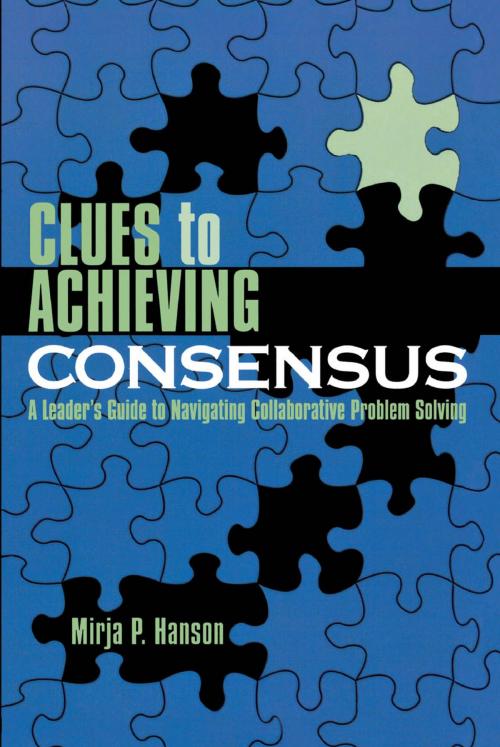Clues to Achieving Consensus
A Leader's Guide to Navigating Collaborative Problem Solving
Nonfiction, Reference & Language, Education & Teaching, Educational Theory, Leadership, Administration| Author: | Mirja P. Hanson | ISBN: | 9781461648413 |
| Publisher: | R&L Education | Publication: | December 22, 2005 |
| Imprint: | R&L Education | Language: | English |
| Author: | Mirja P. Hanson |
| ISBN: | 9781461648413 |
| Publisher: | R&L Education |
| Publication: | December 22, 2005 |
| Imprint: | R&L Education |
| Language: | English |
Here is a step-by-step guide to effective action in school districts, agencies, companies, organizations, and communities by using consensus decision-making. This book is based on the advice of experienced public and private leaders and participants who have used consensus approaches to solve problems in past decades. Mirja P. Hanson gives readers an overview of how consensus actually happens as opposed to how it should happen. She details the major pitfalls and critical success factors of consensus decision-making and describes real-life scenarios.
Features:
·Overviews of the consensus basics including definitions, trends, and comparisons to other forms of decision-making
·Results of consensus-building
·A description of the dynamics of consensus politics
·Strategies that call the process to order
·Advice on the pressure points of navigating the dialogue
·A description of the ways that participants can enhance and influence consensus solutions
The experiments and expertise of consensus pioneers will convince readers to use consensus building as a regular leadership tool for enhancing daily operations and future directions in their community or organization.
Here is a step-by-step guide to effective action in school districts, agencies, companies, organizations, and communities by using consensus decision-making. This book is based on the advice of experienced public and private leaders and participants who have used consensus approaches to solve problems in past decades. Mirja P. Hanson gives readers an overview of how consensus actually happens as opposed to how it should happen. She details the major pitfalls and critical success factors of consensus decision-making and describes real-life scenarios.
Features:
·Overviews of the consensus basics including definitions, trends, and comparisons to other forms of decision-making
·Results of consensus-building
·A description of the dynamics of consensus politics
·Strategies that call the process to order
·Advice on the pressure points of navigating the dialogue
·A description of the ways that participants can enhance and influence consensus solutions
The experiments and expertise of consensus pioneers will convince readers to use consensus building as a regular leadership tool for enhancing daily operations and future directions in their community or organization.















